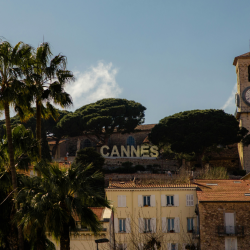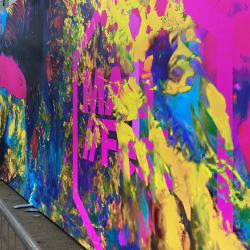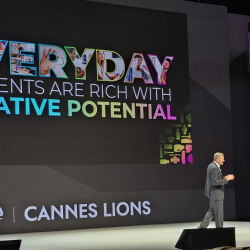Watching Glass Onion: A Knives Out Mystery the other day, it occurred to me that there is a fascinating kind of creative destruction happening at the moment.
Once the rich, overprivileged arseholes had made their way onto a boat, heading for an island, I couldn’t help but be reminded of two other recent films where exactly the same thing happened: Triangle of Sadness and The Menu.
Clearly, all three have set out to skewer the billionaire class, both by ridiculing it and by unleashing a violent or humiliating reckoning upon its members. Of course, it’ll take more than a few movies to destroy the wealthiest, most powerful people on earth, but if it happens, creativity will certainly have played its part.
Attempting to bring down rich people is an age-old practice, but it usually finds a more direct method of delivery, either via pitchforks at dawn or through a good old-fashioned revolution. Both have proven to be very effective, but both also seem to have become a thing of the past, despite the increasing wealth inequality we see today.
Perhaps the 2023 über-loaded have learned a lesson from history and found ways to protect themselves, whether through anonymity, separation or simple bullet-proof glass. They move in different circles to you and I, and even if you know where they live, they have plenty of levels of security to put you off attacking them.
So the haters have had to find more subtle methods of bringing them down; a more creative destruction, if you will.
As far as anti-wealth art goes, you could try writing a book with a billionaire villain, such as Richard Powers’ recent Pulitzer winner, The Overstory. Or you could try the musical approach, as The K*nts did with their festive song ‘Prince Andrew Is A Sweaty Nonce’.
I’m sure both are doing their bit, but do they have the scale, the reach and the cultural impact of a proper movie? The Menu (2022) features big Hollywood stars, Triangle of Sadness (2022) won the Palme D’Or at Cannes, and Glass Onion is the jewel in Netflix’s award season crown.
All are crowd-pleasing black comedies that encourage us to laugh at the crass tastes, bankrupt moralities and craven insecurities of the mintiest of the minted. Does that mean they’ll inspire us to march on the private aircraft hangar of Elon Musk? Unlikely, but they might have contributed to the delight so many people took in his recent downfall. He managed to go from lauded genius to pathetic laughing stock in six months. Did the art help that along? Possibly.
Over the years we’ve seen that movies both shape and respond to the status quo. For example, the post-Nixon era gave us political thrillers, such as The Parallax View (1974), and as All The President’s Men (1976). It’s impossible to say how much they reduced the public’s confidence in their political leadership, but in 1980, they voted in Ronald Reagan, who famously said, ‘The nine most terrifying words in the English language are: I’m from the government, and I’m here to help’. Art may have provided the wave that he surfed to power.
So when the film industry makes the same film with the same point three times in the same year, we should pay attention, and quickly — after all, those films would have been written in 2021 and filmed in 2022. The ball is already rolling.
The movement to satirise and harpoon our supposed betters with creativity is a form of destruction far more powerful than a molotov cocktail. It spreads faster, lasts longer and hits deeper than actual violence. And the scariest thing for the planet’s billionaires is that there’s very little they can do to defend themselves.
Featured image: Glass Onion: A Knives Out Mystery / Netflix































Watching Glass Onion: A Knives Out Mystery the other day, it occurred to me that there is a fascinating kind of creative destruction happening at the moment.
Once the rich, overprivileged arseholes had made their way onto a boat, heading for an island, I couldn’t help but be reminded of two other recent films where exactly the same thing happened: Triangle of Sadness and The Menu.
Clearly, all three have set out to skewer the billionaire class, both by ridiculing it and by unleashing a violent or humiliating reckoning upon its members. Of course, it’ll take more than a few movies to destroy the wealthiest, most powerful people on earth, but if it happens, creativity will certainly have played its part.
Attempting to bring down rich people is an age-old practice, but it usually finds a more direct method of delivery, either via pitchforks at dawn or through a good old-fashioned revolution. Both have proven to be very effective, but both also seem to have become a thing of the past, despite the increasing wealth inequality we see today.
Perhaps the 2023 über-loaded have learned a lesson from history and found ways to protect themselves, whether through anonymity, separation or simple bullet-proof glass. They move in different circles to you and I, and even if you know where they live, they have plenty of levels of security to put you off attacking them.
So the haters have had to find more subtle methods of bringing them down; a more creative destruction, if you will.
As far as anti-wealth art goes, you could try writing a book with a billionaire villain, such as Richard Powers’ recent Pulitzer winner, The Overstory. Or you could try the musical approach, as The K*nts did with their festive song ‘Prince Andrew Is A Sweaty Nonce’.
I’m sure both are doing their bit, but do they have the scale, the reach and the cultural impact of a proper movie? The Menu (2022) features big Hollywood stars, Triangle of Sadness (2022) won the Palme D’Or at Cannes, and Glass Onion is the jewel in Netflix’s award season crown.
All are crowd-pleasing black comedies that encourage us to laugh at the crass tastes, bankrupt moralities and craven insecurities of the mintiest of the minted. Does that mean they’ll inspire us to march on the private aircraft hangar of Elon Musk? Unlikely, but they might have contributed to the delight so many people took in his recent downfall. He managed to go from lauded genius to pathetic laughing stock in six months. Did the art help that along? Possibly.
Over the years we’ve seen that movies both shape and respond to the status quo. For example, the post-Nixon era gave us political thrillers, such as The Parallax View (1974), and as All The President’s Men (1976). It’s impossible to say how much they reduced the public’s confidence in their political leadership, but in 1980, they voted in Ronald Reagan, who famously said, ‘The nine most terrifying words in the English language are: I’m from the government, and I’m here to help’. Art may have provided the wave that he surfed to power.
So when the film industry makes the same film with the same point three times in the same year, we should pay attention, and quickly — after all, those films would have been written in 2021 and filmed in 2022. The ball is already rolling.
The movement to satirise and harpoon our supposed betters with creativity is a form of destruction far more powerful than a molotov cocktail. It spreads faster, lasts longer and hits deeper than actual violence. And the scariest thing for the planet’s billionaires is that there’s very little they can do to defend themselves.
Featured image: Glass Onion: A Knives Out Mystery / Netflix